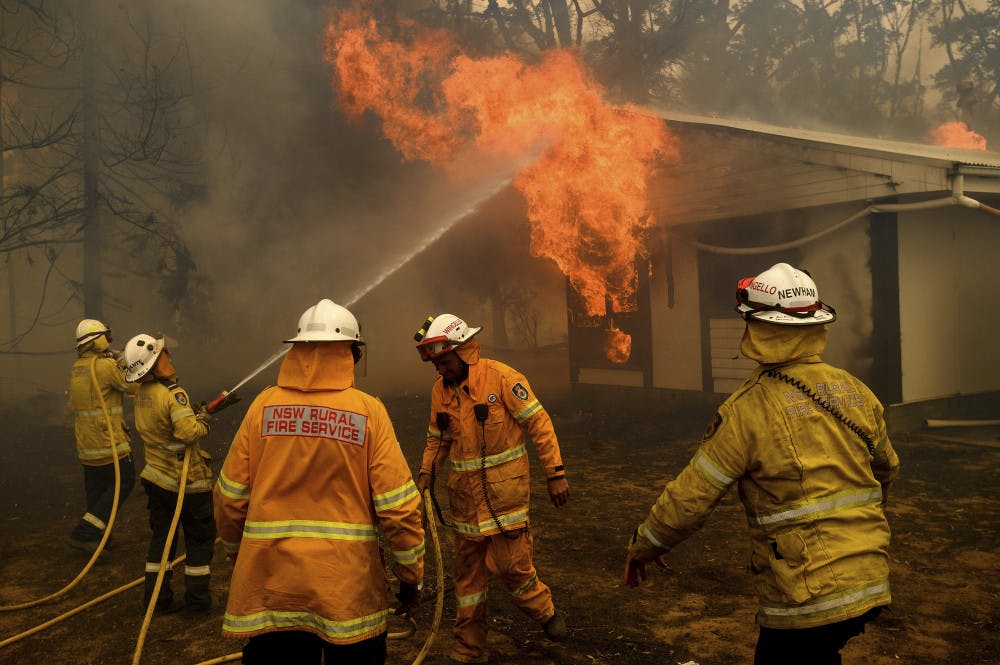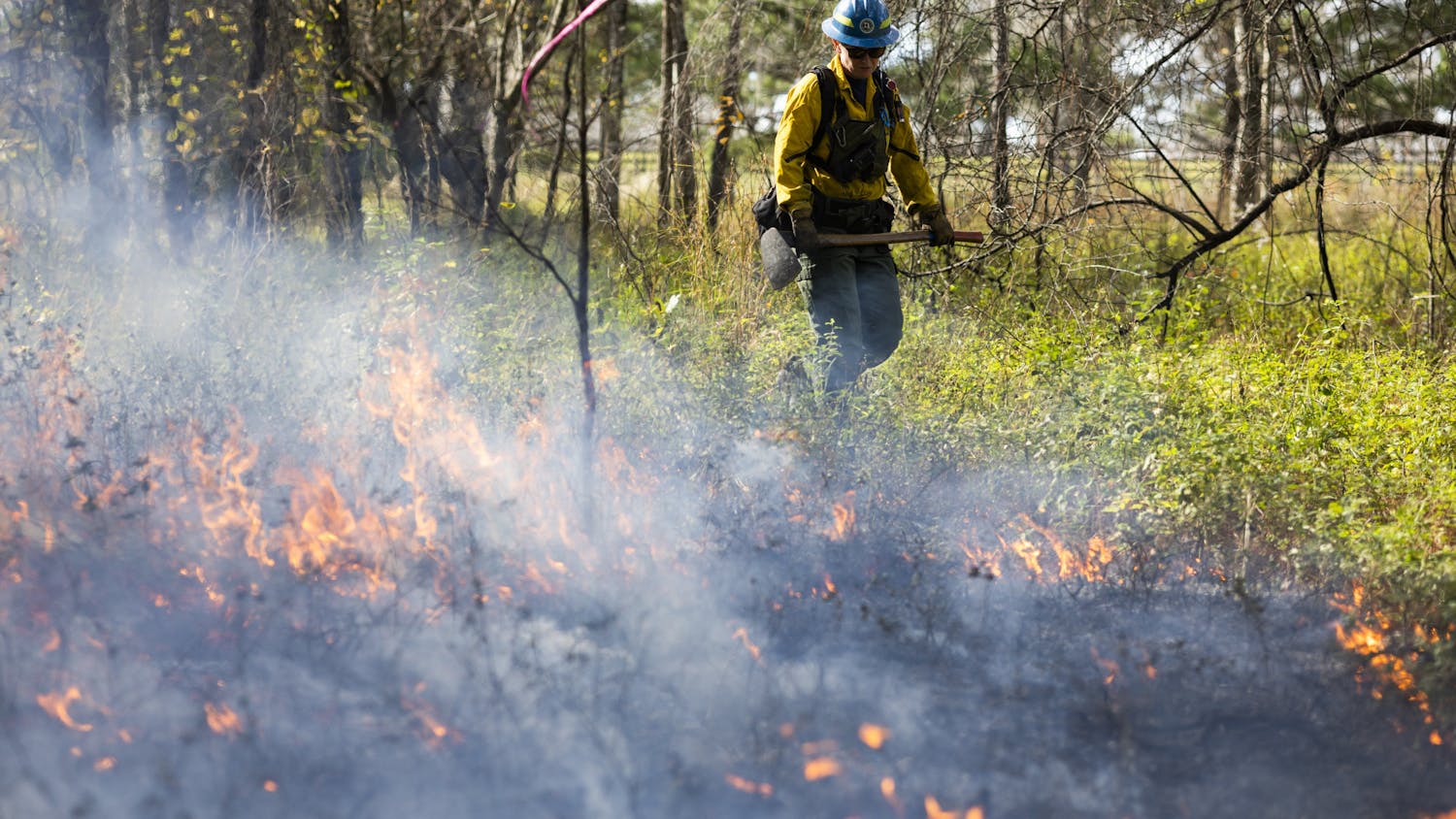As fires continued to rage across her home country, the feeling of “impending doom” became more and more familiar to Kristina Moore.
Since Australia’s fire season began in July, more than 16 million acres have gone up in flames in New South Wales and Victoria, two Australian states. Caused by a combination of high temperatures, a record-setting drought and lightning strikes, the fires, which have spread across the country, have killed millions of wildlife and destroyed more than 2,500 homes, according to the New York Times.
Moore, a 20-year-old sport management sophomore from Sydney, is just one of several UF students feeling the impacts of the Australian wildfires more than 9,000 miles away.
She said during the past few months, she was never quite sure if, or when, the fires would infringe on the lives of her family and friends.
“It was more just a waiting game to see if anything would ever personally affect me,” Moore said. “But then there’s that devastation of seeing your favorite places just burn.”
Hoping to lend a hand to her home country, Moore, a small forward and guard on the Florida women’s basketball team, chose to dedicate four games of the season to the Australian wildfires — donating $1 for every point the UF team scored.
Out of the four games, the team scored 220 points in total. However, Moore rounded up to donate $300 between two Australia-based organizations, Port Macquarie Koala Hospital and Drought Angels, which work to rehabilitate wildlife and support rural farmers.
Though she hasn’t returned to Australia since the fires began, her parents’ plans to visit her in Gainesville during winter break were delayed due to the hazardous smoke.
Moore said she was saddened to see how long it took for people to start talking about the Australian wildfires. She felt as though the damage was already done by the time the world took notice.
“Americans really don’t understand the true impact this had on our country as a whole,” Moore said.
Steve Johnson, a UF associate professor in wildlife ecology and conservation, was a visiting scholar at James Cook University in Townsville, Queensland, Australia during his sabbatical in 2013 to 2014.
There, he focused on learning more about the conservation history in order to coordinate the UF in Australia: Wildlife Biodiversity study abroad program. He later guided study abroad trips in Northern Queensland in 2015, 2017 and 2019.
Johnson said just as the recent fires have devastated countless wildlife, their after-effects could also cause death to plants and animals, indirectly, from lack of food and resources.
He specifically raised concern about koalas, who mainly eat eucalyptus leaves, given that many eucalyptus forests have been damaged from the fires.
The eucalyptus forests have volatile compounds that allow them to burn easily, Johnson said.
Johnson estimates it will be “years or decades” before people know the magnitude of ecological damage from the fires.
Queensland native Caitlin McQuilkin-Bell, a 22-year-old UF family, youth and community sciences and health education and behavior double-major senior, feels similarly disappointed the wildfires took so long to hit international news, given they started in summer.
“Why did it take so long for other people to actually realize we need help?” McQuilkin-Bell said.
McQuilkin-Bell’s family was on evacuation watch from late September to early January as fires burned across her road and property. Queensland Fire and Emergency Services issued a warning in November for residents to evacuate the Scenic Rim region, which includes her hometown.
While her family didn’t need to evacuate, her friends in Sarabah, a locality 18 miles south of her home in Tamborine, Queensland, were forced to.
“Close family friends, who we ride horses with, live on a farm, and their house was taken over by fire,” McQuilkin-Bell said. “Their farm was taken over by fire, and they had to evacuate all their horses.”
She said the devastating impacts of the fires have made her want to return to her hometown Tamborine to help protect her family and home.
“I feel more proud to be Australian because I know now we can bounce back,” McQuilkin-Bell said. “ Sounds weird, but it makes me love my country even more and want to be home."
Firefighters battle the Morton Fire as it burns a home near Bundanoon, New South Wales, Australia, on Thursday, Jan. 23, 2020. (AP Photo/Noah Berger)






